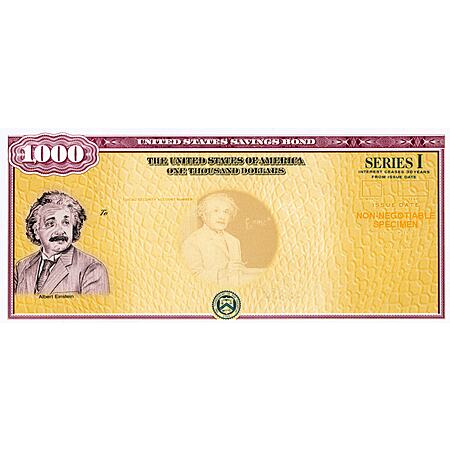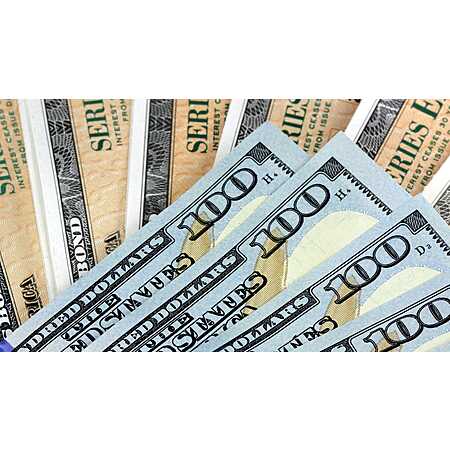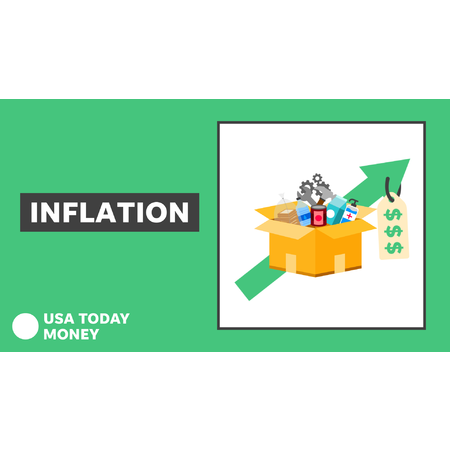How to buy: After registering and logging in, click on "BuyDirect" on the top menu bar. Check the "Series I" radio button.
Comparing Series EE and Series I Savings Bonds
https://www.treasurydir
Please note:
1. This 7.12% rate on I bond is for next six months only (April 2022).
2. If, in April inflation is higher than today, they will earn higher, if inflation is less they will earn less for next six months, so basically rate changes every six months based on inflation.
3. You can keep these for 30 years or withdraw earlier (see #4 below)
4. You need to wait for 1 year before you can withdraw
5. If you withdraw between 1 yr and 5 yr, you lose last 3 months of interest (see #2 above, so if based on inflation if interest it was paying was reduced, you lose reduced interest)
6. After 5 year, no penalty so you don't lose last 3 months of interest
7. No state taxes on distribution (as per my understanding)
8. If you used for certain causes (like education) and your AGI is below certain value, you don't pay Federal tax as well (as per my understanding)
9. Buy at the end of month (on the 30th of a 31-day month, or 29th of a 30-day month), interest starts accruing from the 1st of the same month.
10. Interest rate can go down to 0% but not lower. This happened in 2009 during deflation.
Purchasing for others - https://slickdeals.net/f/15497017-us-treasury-series-i-savings-bonds-inflation-rate-earnings-nov-21-april-22-7-12-interest-limit-10k-year-per-person?p=152307
FAQs Concerning the Change in the Annual Purchase Limit for Savings Bonds [treasurydirect.gov]
Buy I Bonds as a Gift: What Works and What Doesn't [thefinancebuff.com]
Historical bond rate chart:
https://www.treasurydir
Nov 2021 7.12%
May 2021 3.54%
Nov 2020 1.68%
May 2020 1.06%
Nov 2019 2.22%
May 2019 1.9%
Nov 2018 2.83%
One trick to max out these I bonds: Overpay your estimated taxes now, by at least $5000, and then you can apply your refund of up to $5000 to buy $5000 more of I bonds, so it brings your total per year up to $15,000. The $5000 will come as paper I bonds, but you can mail them to the Treasury and convert them into electronic bonds.
Track inflation and iBond here
Update Apr 2022 [wordpress.com]
About this offer:
- How do I buy a Series I bond?
- Must register or sign-in to your free TreasuryDirect.gov account and link a bank account.
- Electronically: Online via TreasuryDirect (including through payroll direct deposit)
- Paper: By mail when you file your federal tax return
- Click here to view a Guided Tour
- Must register or sign-in to your free TreasuryDirect.gov account and link a bank account.
- What is a Series I bond? (source)
- "A savings bond that earns interest based on combining a fixed rate and an inflation rate."
- You may use Series I bonds to:
- Save in a low-risk product that helps protect your savings from inflation
- Supplement your retirement income
- Give as a gift
- Pay for education
- Click here for more information about Series I Bonds
- What interest does a Series I bond earn? (source)
- A combination of a fixed rate that stays the same for the life of the bond and an inflation rate that is set twice a year.
- For bonds issued from November 2021 through April 2022, the combined rate is 7.12%
- On May 1, 2022, the rate is scheduled to update, and is expected to be over 9%. Source 1 [cnbc.com] Source 2 [tipswatch.com]
This post can be edited by most users to provide up-to-date information about developments of this thread based on user responses, and user findings. Feel free to add, change or remove information shown here as it becomes available. This includes new coupons, rebates, ideas, thread summary, and similar items.
Once a Thread Wiki is added to a thread, "Create Wiki" button will disappear. If you would like to learn more about Thread Wiki feature, click here.



Leave a Comment
Top Comments
In case you're wondering, here's how the rate is computed:
Composite rate =
I bought $10k in denominations of 2,3, 5 so if I want to cash out I can do it in chunks instead of having to cash out $10k.: Better than any CD or bank rate if you want to stay in cash.
https://www.treasurydir
3,498 Comments
Sign up for a Slickdeals account to remove this ad.
Our community has rated this post as helpful. If you agree, why not thank TomHagen
Our community has rated this post as helpful. If you agree, why not thank DerpVader
https://www.treasurydir
Our community has rated this post as helpful. If you agree, why not thank Nrkeene
7% on a tbill?! Causes me to really worry about inflation!
Our community has rated this post as helpful. If you agree, why not thank foxfai
https://www.treasurydir
Our community has rated this post as helpful. If you agree, why not thank sdpoker
In case you're wondering, here's how the rate is computed:
Composite rate = [fixed rate + (2 x semiannual inflation rate) + (fixed rate x semiannual inflation rate)]
Sign up for a Slickdeals account to remove this ad.
Our community has rated this post as helpful. If you agree, why not thank KMan
That said, 7%? When did that happen in an era of near-0% prime rates?
Our community has rated this post as helpful. If you agree, why not thank thehash
That said, 7%? When did that happen in an era of near-0% prime rates?
Our community has rated this post as helpful. If you agree, why not thank darkNiGHTS
In case you're wondering, here's how the rate is computed:
Composite rate = [fixed rate + (2 x semiannual inflation rate) + (fixed rate x semiannual inflation rate)]
Sign up for a Slickdeals account to remove this ad.
Our community has rated this post as helpful. If you agree, why not thank Jackalope
Yes, you might have to pay taxes on any interest or gains for any bond or security. This is no different.
BUT -- these I bonds are better since they are not subject to State and Local tax!
https://www.treasurydir
Leave a Comment